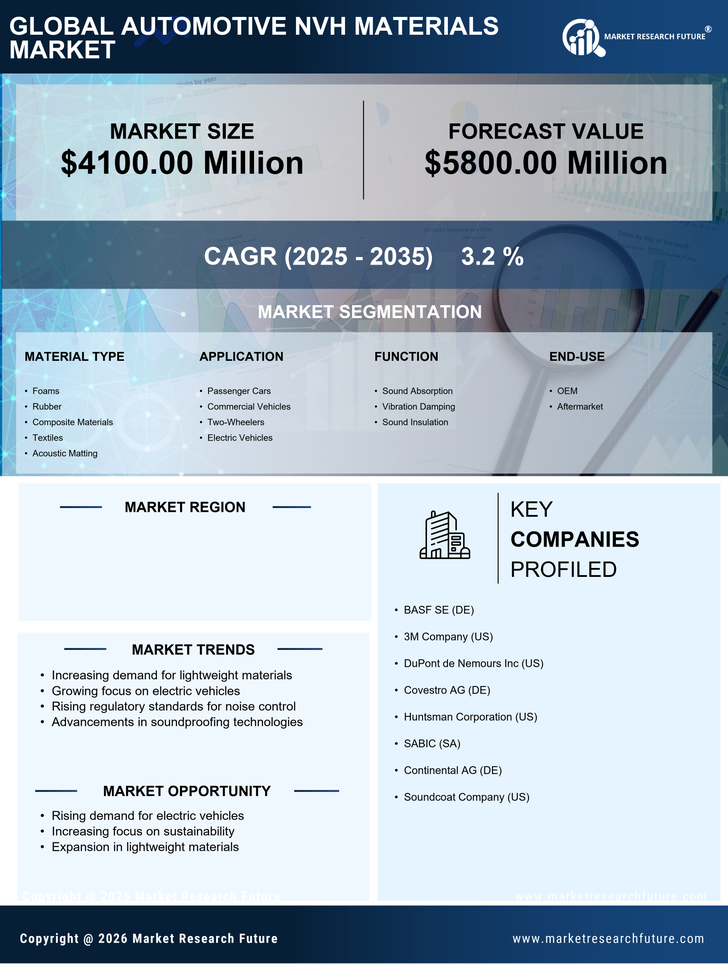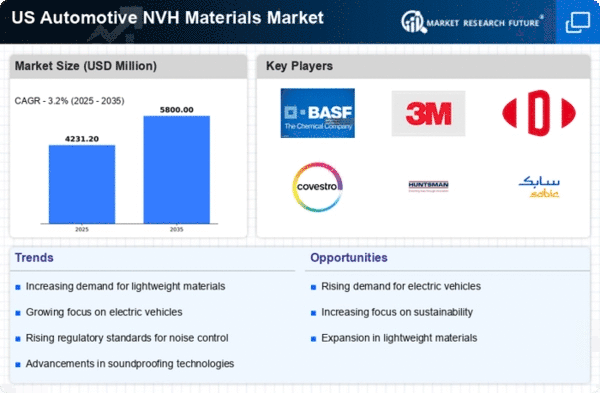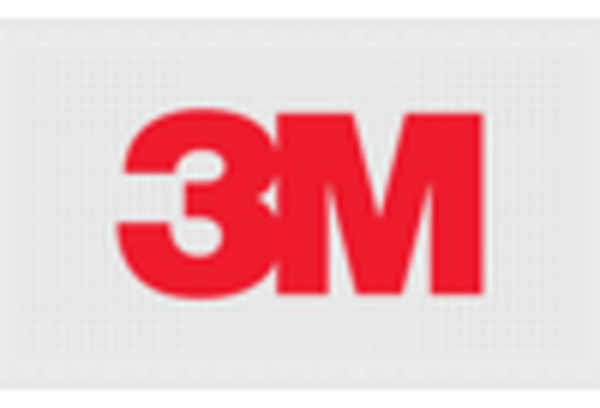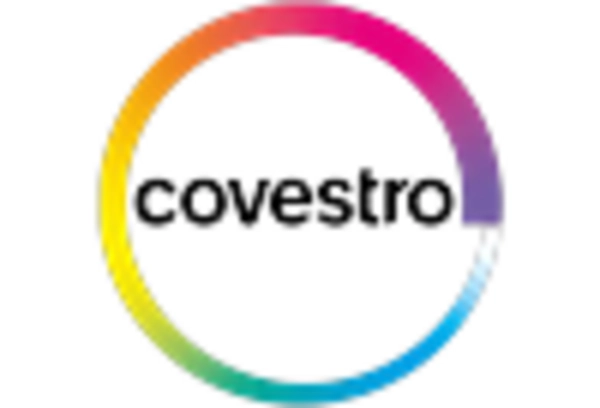Growth of the Automotive Industry
The automotive industry in the US is experiencing robust growth, which is directly influencing the automotive nvh-materials market. As vehicle production ramps up, the demand for high-quality NVH materials is expected to rise correspondingly. The market is projected to reach a valuation of approximately $3 billion by 2030, driven by the increasing production of passenger and commercial vehicles. This growth is further fueled by the introduction of new models that prioritize comfort and noise reduction. Consequently, manufacturers are compelled to invest in advanced NVH materials to remain competitive, indicating a strong correlation between automotive industry growth and the demand for NVH solutions.
Regulatory Compliance and Standards
The automotive nvh-materials market is increasingly influenced by stringent regulatory compliance and standards set by governmental bodies. These regulations aim to reduce noise pollution and enhance vehicle safety, thereby driving manufacturers to adopt advanced NVH materials. For instance, the Environmental Protection Agency (EPA) has established guidelines that necessitate the use of materials that minimize noise emissions. As a result, companies are investing in research and development to create innovative solutions that meet these standards. The market is projected to grow at a CAGR of approximately 5.2% from 2025 to 2030, reflecting the rising demand for compliant materials. This trend indicates that adherence to regulations is not merely a legal obligation but also a competitive advantage in the automotive nvh-materials market.
Consumer Demand for Enhanced Comfort
There is a notable shift in consumer preferences towards vehicles that offer superior comfort and reduced noise levels. This demand is propelling the automotive nvh-materials market as manufacturers strive to enhance the acoustic performance of their vehicles. Studies indicate that consumers are willing to pay a premium for vehicles that provide a quieter cabin experience, which has led to an increased focus on the development of high-performance NVH materials. The market is expected to witness a growth rate of around 4.8% annually, driven by this consumer trend. Consequently, automotive manufacturers are prioritizing the integration of advanced NVH materials to meet these expectations, thereby shaping the future landscape of the automotive nvh-materials market.
Shift Towards Electric and Hybrid Vehicles
The transition towards electric and hybrid vehicles is reshaping the automotive nvh-materials market. As these vehicles typically operate more quietly than traditional combustion engines, there is a heightened focus on optimizing NVH performance to ensure a comfortable driving experience. This shift is prompting manufacturers to explore innovative materials that can effectively manage noise and vibration in electric drivetrains. The market is anticipated to grow by approximately 5.5% as the adoption of electric vehicles accelerates. This trend indicates that the automotive nvh-materials market must adapt to the unique challenges posed by electric and hybrid technologies, thereby creating new opportunities for material innovation.
Technological Advancements in Material Science
The automotive nvh-materials market is significantly impacted by ongoing technological advancements in material science. Innovations such as the development of lightweight composites and sound-absorbing foams are revolutionizing the way manufacturers approach noise, vibration, and harshness issues. These advancements not only improve the acoustic performance of vehicles but also contribute to overall weight reduction, enhancing fuel efficiency. The market is projected to expand as manufacturers increasingly adopt these cutting-edge materials, with an estimated growth of 6% over the next five years. This trend suggests that the integration of new technologies will play a crucial role in shaping the competitive dynamics of the automotive nvh-materials market.

















